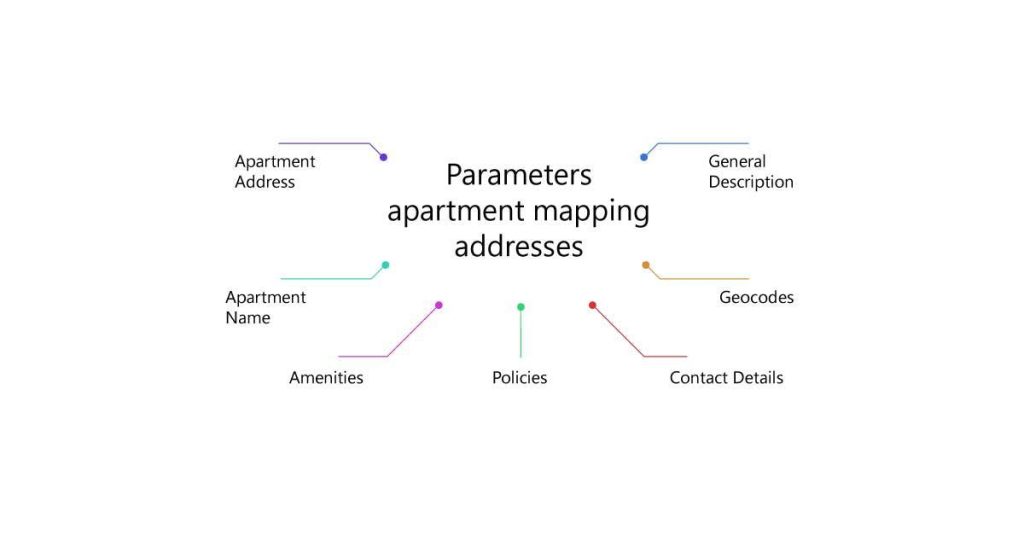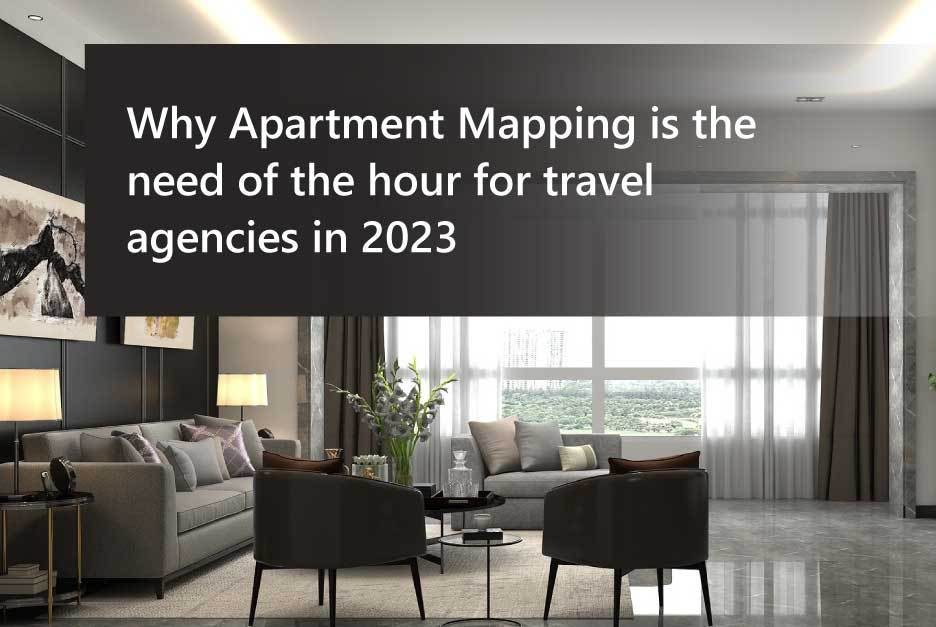The rise of the sharing economy and COVID-19 made vacation rentals and apartments a popular choice among travelers. A Research and Markets report shared the global vacation rental market size is expected to reach $119 billion by 2030. There is a growing preference for apartments and homes among travelers, thanks to the comfort, privacy, safety, better amenities and reasonable tariffs. Also, platforms like Airbnb, Vrbo, Booking.com, and FlipKey have understood the traveler’s pulse and keep offering lucrative alternatives to the traditional hotel experience.
Short-term rentals are gradually becoming a mainstream accommodation choice. And 2023 is predicted to be the year of reimagining travel, where 73% of travelers are more optimistic about travel than they were in 2022. So, it’s time for accommodation providers such as OTAs, tour operators, DMCs, and TMCs to focus on enhancing their platform with apartment mapping. This blog will explain apartment mapping, its challenges, why it is a must in 2023 and its benefits. Let’s get straight into it.
What is apartment mapping?

Apartment mapping or matching is the process of aggregating apartment IDs from various suppliers in an organized manner. This minimizes inconsistency and duplicate apartment names on the website. The end goal of apartment mapping is to improve customer booking experience, where the end-user can view organized and accurate apartment information without duplicates.
Apartment mapping powered by AI and NLP follows data cleansing, data standardization, apartment content enrichment and deduplication.
Overall, apartment mapping takes care of the following details:
- Apartment address
- apartment name
- contact details
- geocodes
- general description
- policies
- amenities
Also Read – Cloud Infrastructure for Scalable and Secure Travel Booking Platforms
Why is apartment mapping a must?
The short-term rental or vacation rental ecosystem is growing profoundly. Travelers are looking for offbeat homes that bring a dash of adventure or unique experience to their holiday trips. And due to the increasing demand for vacation rentals, every travel agency wants to invest in short-term rentals. However, there is a good share of complexity involved with apartments, such as apartment data being unstructured, apartment information being minimal, unreliable and ambiguous data.
Here’s how apartments are described on vacation rental platforms or OTAs:
- 30A Beach Cottage – Gated, Private Beach, Heated Pool
- Sleek 30A Beach Vacation Condo with Private Beach Access, Heated Pool
Both descriptions are of the same property but are displayed as two unique properties on the website. Also, the vacation rental information is highly variable, due to which travel agencies tend to miss out on duplicate data. That’s why there is a growing need for apartment mapping. Now that we have explained apartment mapping and its necessity let’s find out its on-going challenges.
Apartment mapping challenges
Apartment mapping or non-hotel accommodation (NHA) mapping is highly complex. Here are some of the challenges associated with apartment mapping:
1. Unstructured data
Apartment data is cluttered with details that need to be streamlined to avoid duplication. This massive unstructured data adds a layer of complexity to the apartment mapping process.
2. Minimal apartment data
Unfortunately the apartment data is not as straightforward as hotels. The descriptions are catchy and don’t have complete information. For example,
Cottage in Yosemite National Park. Stay in the heart of the woods.
This apartment title has minimal details about the apartment name, room type, number of rooms, etc. Because of such minimal data, the mapping process for apartments or vacation rentals turns out to be a tedious task.
3. Increase in bad mapping
Minimal data and unstructured apartment information lead to inaccurate matching, which increases bad mapping volumes. Here’s an example of two different condos in Atlanta.
- Contemporary Condo Located in the Center of Downtown Atlanta
- Crispy & Clean 1 Bedroom Condo in the Heart of Downtown Atlanta
Both condos have a similar title but are different properties. Due to unstructured data challenges, 2 different apartments get wrongly grouped under one ID, resulting in bad mapping.
4. Plenty of data variation
Apartments have various data variations, such as the condo might be open for a week or it might shut down immediately. Such changes don’t get updated by the property managers, making it difficult for OTAs to sell right apartments at the right time to the right traveler.
Recommended: Vacation rental software: Five key features to consider
Conclusion
The future of travel is influenced by short-term rentals, and it is expected to topple hotels, resorts and redefine the hospitality industry. 2023 is the year when vacation rentals will be highly in demand; that’s why travel agencies must look into solving the growing issue of apartment data duplication on priority. Vervotech offers apartment mapping powered by AI, and machine learning with an accuracy of 99.999% and a coverage of above 98%. Currently, we have mapped over 1 million apartments and have 700,000 apartment IDs. How do we do it? We have a robust manual content analyst team that verifies every apartment and short-term rental and ensures accurate data is showcased on our client’s platform.







